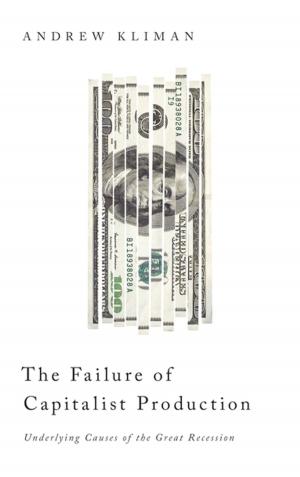The Privatization of Israeli Security
Nonfiction, Social & Cultural Studies, Political Science, International, International Relations, Business & Finance| Author: | Shir Hever | ISBN: | 9781786801739 |
| Publisher: | Pluto Press | Publication: | November 20, 2017 |
| Imprint: | Pluto Press | Language: | English |
| Author: | Shir Hever |
| ISBN: | 9781786801739 |
| Publisher: | Pluto Press |
| Publication: | November 20, 2017 |
| Imprint: | Pluto Press |
| Language: | English |
Between 1994-2014, Israel’s security service was transformed, becoming one of the most extreme examples of privatised security in the world. This book is an investigation into this period and the conditions that created ‘Occupation Inc.’: the institution of a private military-security-industrial complex. *BR**BR*State sponsored violence is increasing as a result of this securitisation, but why is it necessary, and what are its implications? In this book, Shir Hever considers the impact of the ongoing Palestinian resistance to Israeli occupation, the influence of U.S. military aid and the rise of neoliberalism in Israel, to make sense of this dramatic change in security policy. *BR**BR*Through the lens of political economy, this book shows how the Israeli security elites turn violence into a commodity in order to preserve their status and wealth, providing a fresh new perspective on the Israeli occupation.
Between 1994-2014, Israel’s security service was transformed, becoming one of the most extreme examples of privatised security in the world. This book is an investigation into this period and the conditions that created ‘Occupation Inc.’: the institution of a private military-security-industrial complex. *BR**BR*State sponsored violence is increasing as a result of this securitisation, but why is it necessary, and what are its implications? In this book, Shir Hever considers the impact of the ongoing Palestinian resistance to Israeli occupation, the influence of U.S. military aid and the rise of neoliberalism in Israel, to make sense of this dramatic change in security policy. *BR**BR*Through the lens of political economy, this book shows how the Israeli security elites turn violence into a commodity in order to preserve their status and wealth, providing a fresh new perspective on the Israeli occupation.















